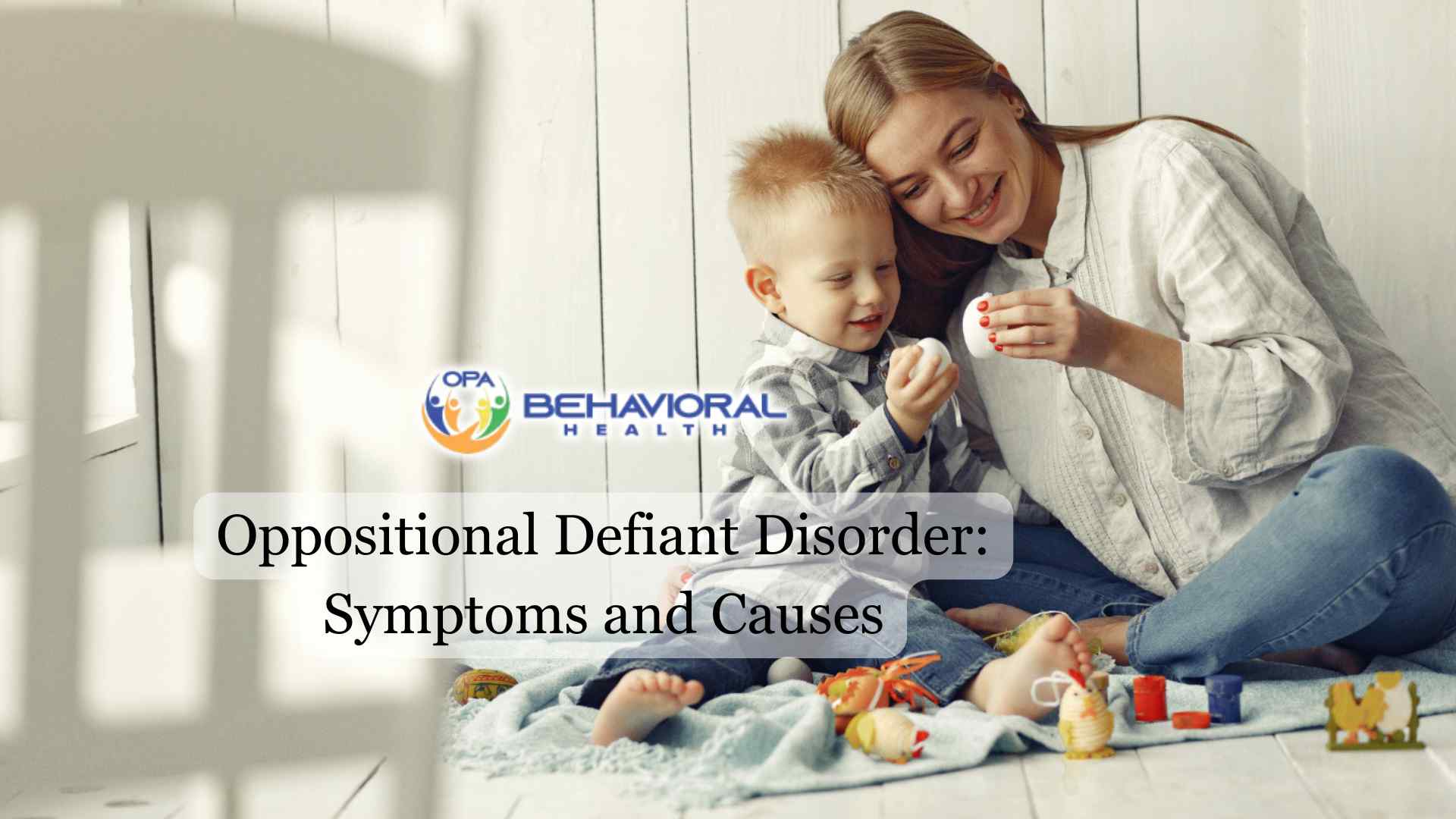Oppositional Defiant Disorder (ODD) is a complex and often misunderstood behavioral condition that primarily affects children and adolescents. To provide appropriate support and interventions, it is crucial for parents, educators, and healthcare professionals to understand the symptoms and underlying causes of ODD.
This article explores the defining characteristics of ODD, highlighting the emotional and behavioral symptoms that set it apart, as well as examining the biological, psychological, and environmental factors that contribute to its development.

What is Oppositional Defiant Disorder (ODD)?
Oppositional Defiant Disorder (ODD) is a disruptive behavior disorder that can make life challenging for both the child and their family. It’s characterized by a persistent pattern of anger, irritability, defiance, and argumentative behavior towards authority figures. If you’re noticing these symptoms in your child, it’s important to understand what ODD entails.
ODD is primarily diagnosed in children and adolescents, with symptoms typically emerging before the age of 8. These symptoms can significantly disrupt a child’s functioning at home, in school, and in social settings.
The prevalence of ODD ranges from 1% to 16% among children and adolescents, with a higher incidence observed in boys compared to girls.
For a diagnosis to be made, these symptoms must persist for at least six months. It’s crucial to note that ODD often co-occurs with other disorders, such as ADHD and mood disorders, which can complicate the clinical picture and treatment approaches.
Symptoms of ODD
Emotional symptoms of ODD include an angry mood characterized by frequent temper loss, touchiness, and persistent resentment towards others. They may argue excessively with adults and deliberately refuse to comply with requests, causing significant disruptions in daily functioning.
Defiant behavior is a hallmark of ODD, with affected children displaying vindictiveness and seeking revenge on others, particularly when upset
Beyond the emotional challenges, ODD is characterized by a range of disruptive behavioral symptoms that strain relationships and interfere with daily functioning. They may actively refuse to comply with your requests or deliberately annoy others, leading to constant power struggles at home and school. They may blame others for their mistakes and lash out vindictively when upset.
It is interesting to note that boys tend to exhibit higher rates of ODD symptoms in early childhood, but this gap narrows during adolescence.
Accurately diagnosing and treating ODD requires a thorough evaluation of your child’s behavior over an extended period, as well as an assessment of the impact on their social, academic, and family functioning.
Causes of ODD
While the exact causes of ODD remain unclear, a complex interplay of biological, psychological, and environmental factors contributes to its development.
Genetic factors are significant, as children with a family history of behavioral issues have a 50% chance of developing similar conditions. Those with ODD often exhibit differences in brain function related to impulse control and emotional regulation, which can be influenced by biological predispositions.
Variations in neurotransmitter systems, such as serotonin and dopamine, may contribute to the emotional dysregulation and irritability seen in ODD. A history of parental mental health disorders, including ADHD and mood disorders, is associated with an increased risk due to inherited temperament traits.

Risk Factors
Harsh parenting practices, such as inconsistent discipline or a lack of supervision, can exacerbate these predispositions and contribute to the disorder’s development.
Exposure to violence or trauma during formative years is another critical environmental risk factor that can negatively impact emotional regulation and interpersonal relationships.
Family instability, including stressful home environments or parental conflicts, increases the likelihood of developing ODD, especially for children who lack a supportive network.
Socioeconomic factors, such as poverty and associated stressors, create an environment that exacerbates behavioral issues and limits access to positive reinforcement.
Peer influences, where problematic behaviors receive attention or reinforcement from peers, can further entrench defiant behaviors and increase the risk of developing ODD.
Complications
When left untreated, Oppositional Defiant Disorder (ODD) can lead to a range of complications that extend beyond the immediate family environment.
Children with ODD are at a higher risk of developing co-occurring mental health conditions, such as ADHD, anxiety disorders, and mood disorders. These additional challenges can further complicate their lives and hinder their overall well-being.
Approximately 30% of children with ODD may progress to conduct disorder if they don’t receive timely treatment, which involves more severe behavioral issues that can have long-lasting consequences.
Early intervention is crucial in mitigating the risks of developing more severe mental health disorders in the future.
Without proper treatment, ODD can lead to negative long-term outcomes, including difficulties in relationships, academic challenges, and potential substance abuse in adolescence and adulthood.
Final Thoughts from OPA Behavioral Health
Early identification and intervention are crucial in managing ODD and preventing potential complications, such as academic difficulties, social problems, and an increased risk of developing other mental health disorders later in life.
At OPA Behavioral Health we believe that with proper support and treatment, children with ODD can learn to manage their emotions and behavior, leading to improved family relationships and overall well-being.








